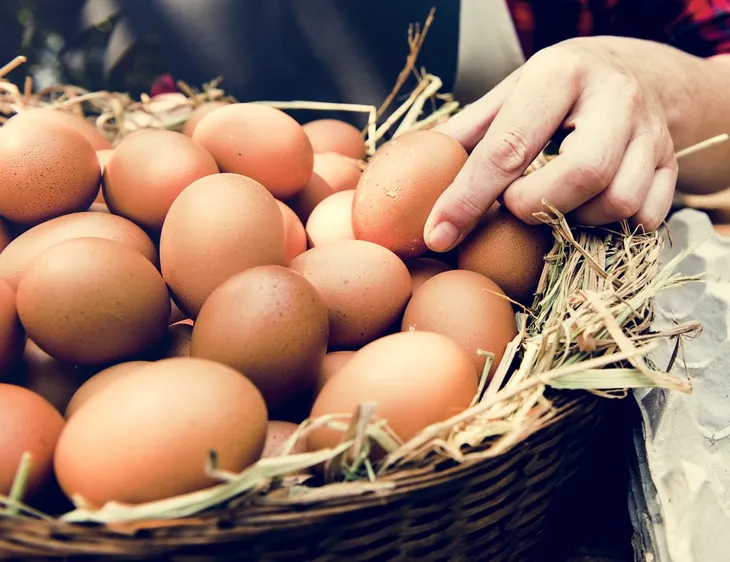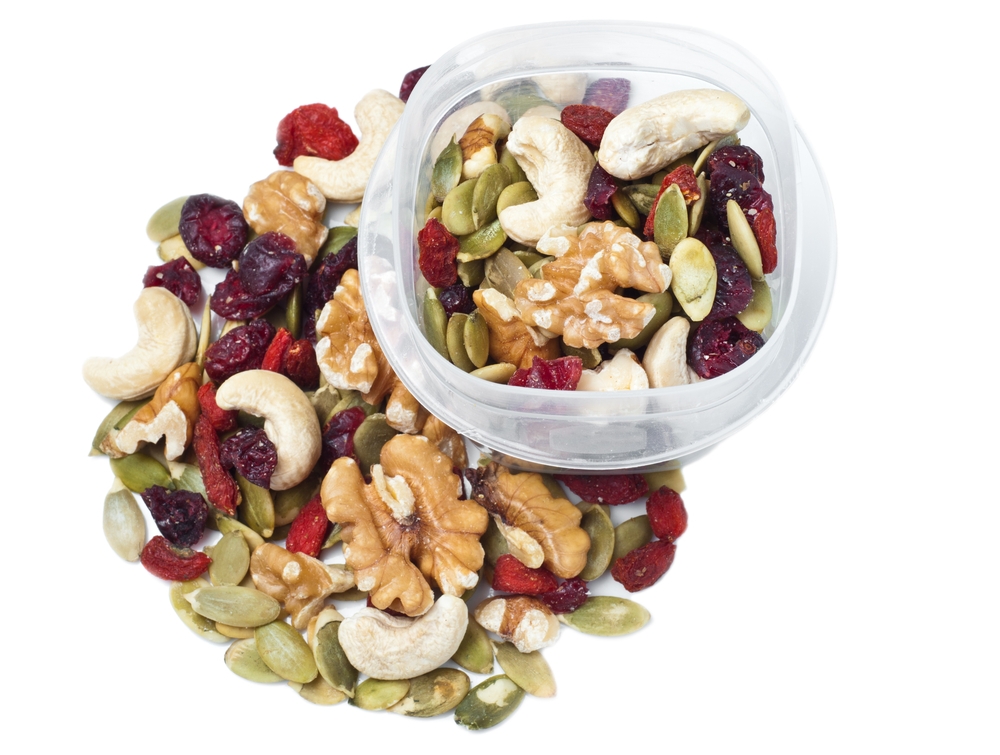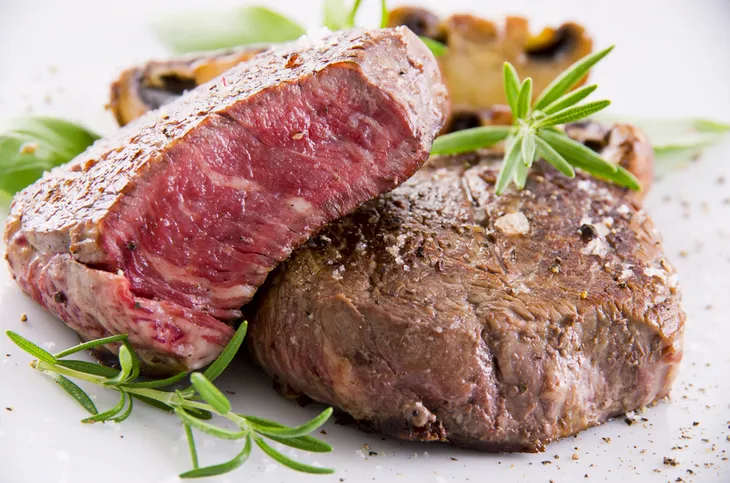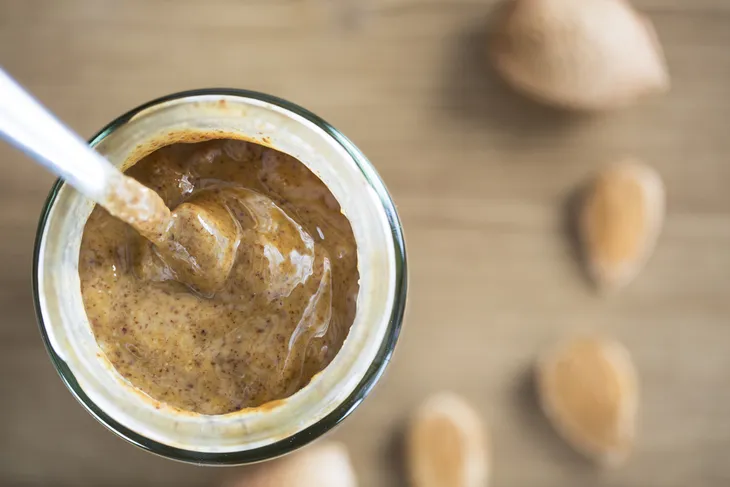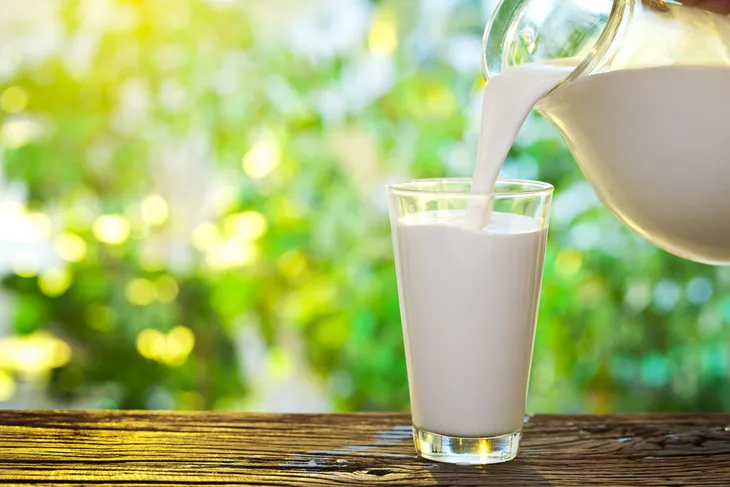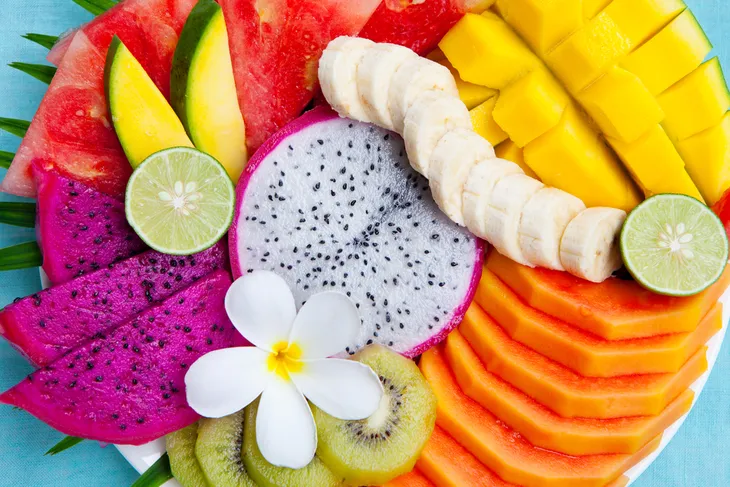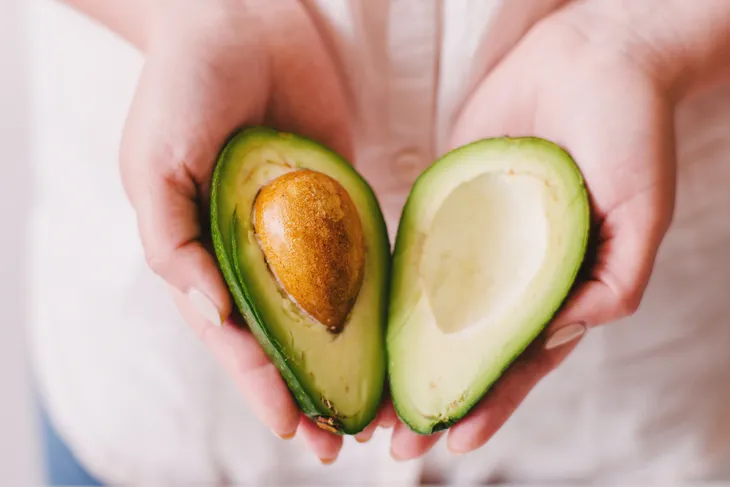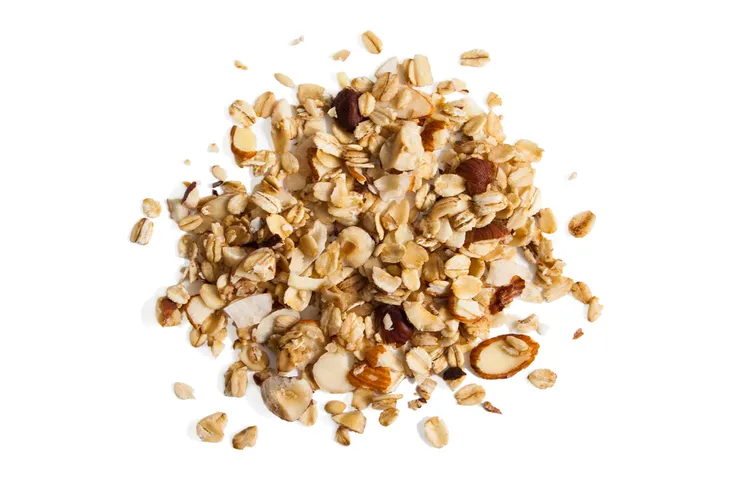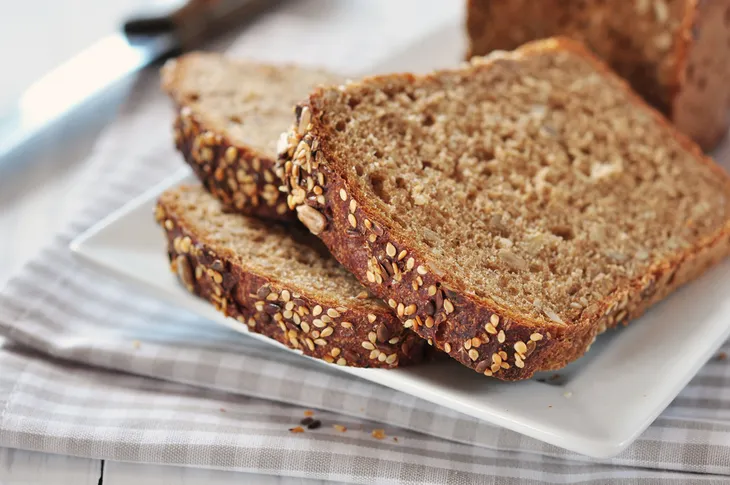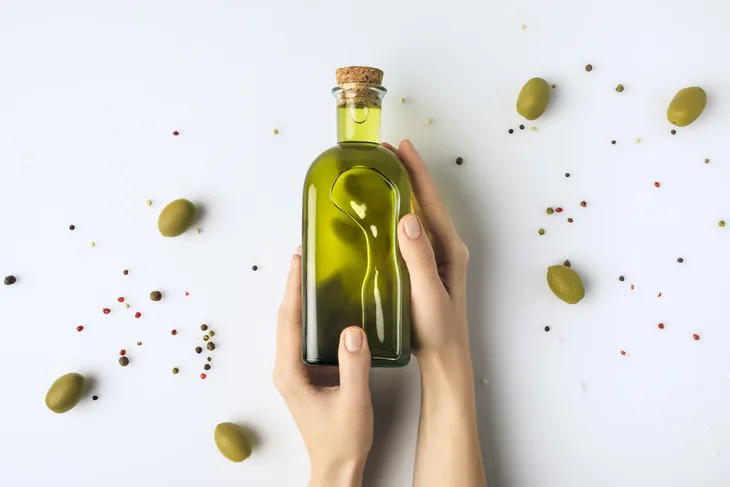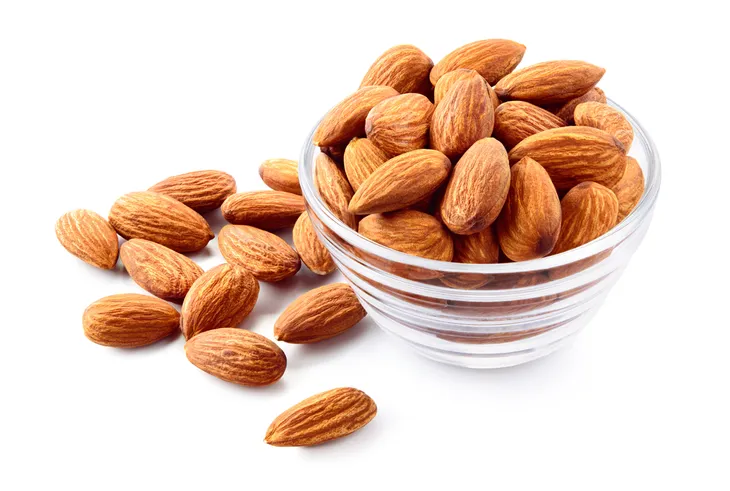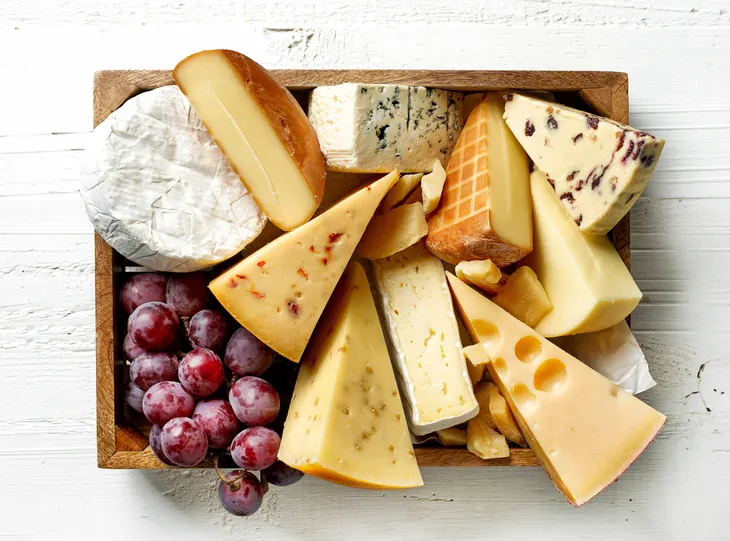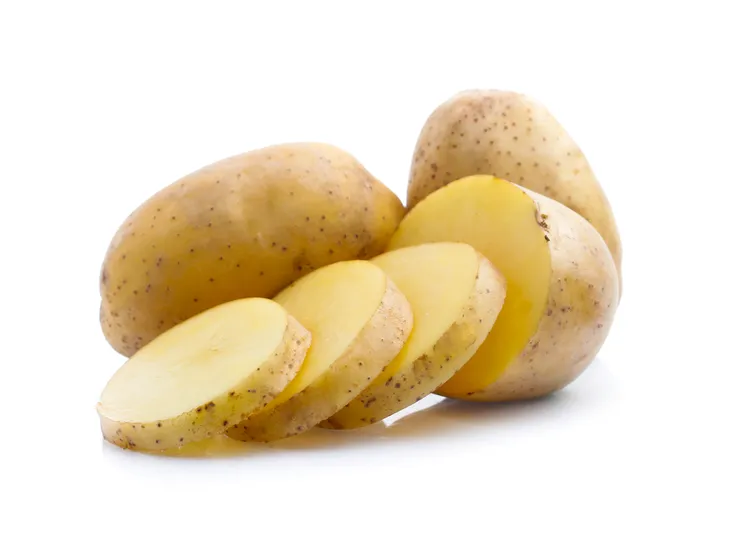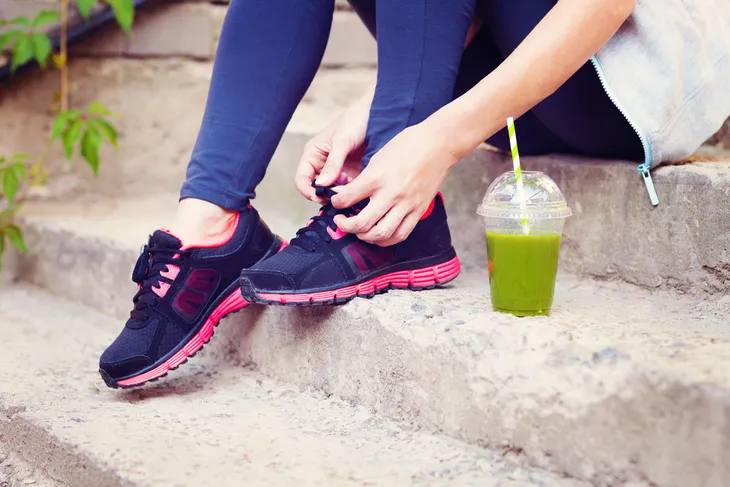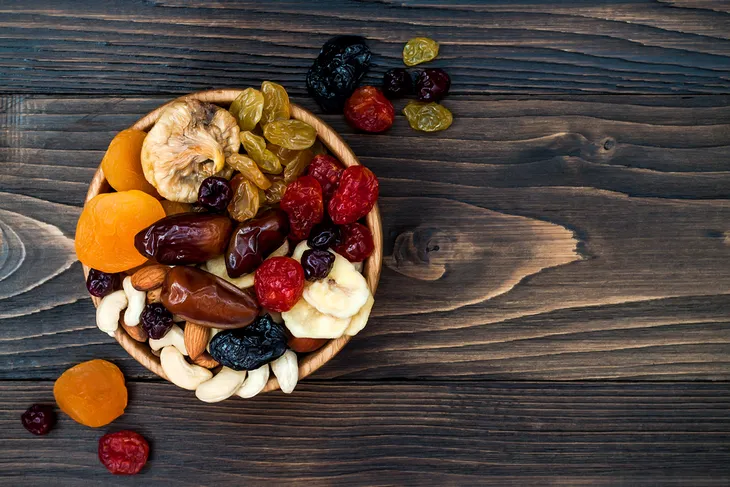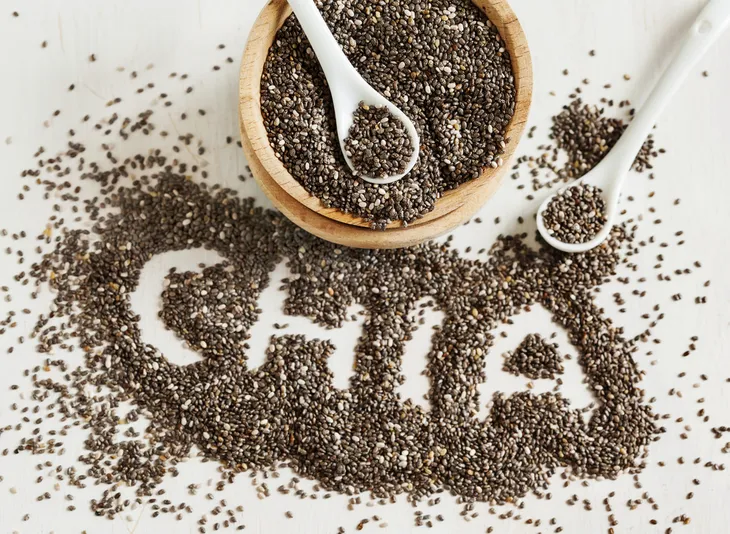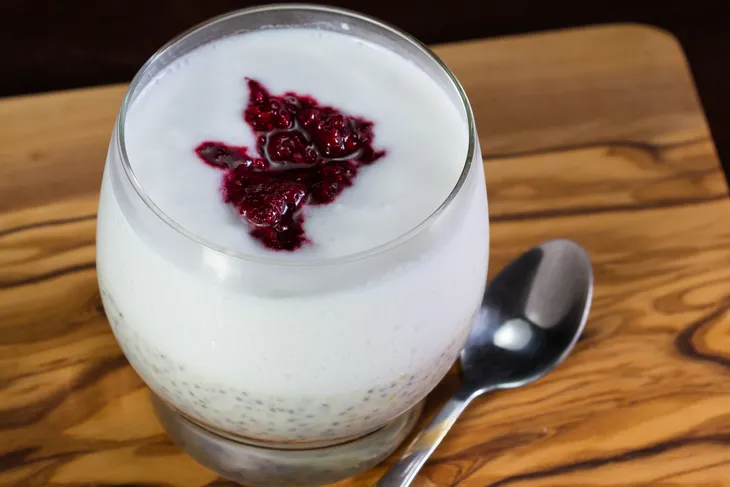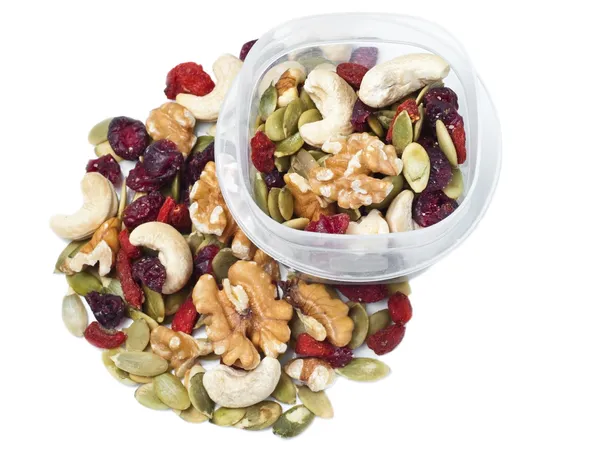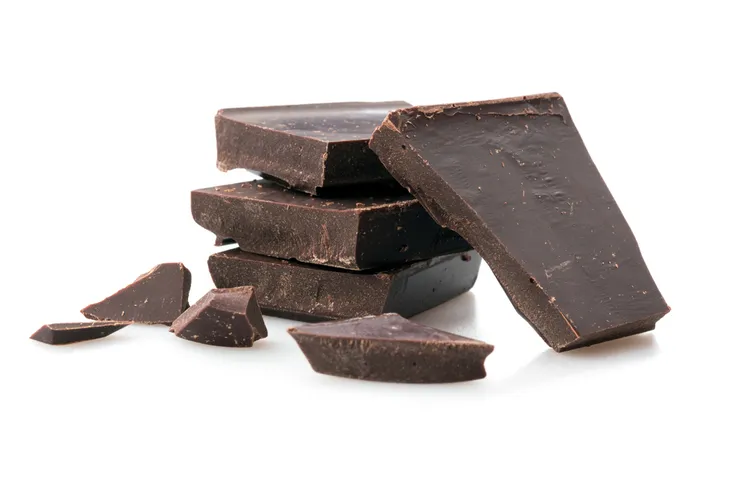It seems like all of America is obsessed with losing weight, but what happens if you want to gain weight? Some people are naturally quite small and they too feel the effects of bullying. It can be very hard for a person with a fast metabolism to gain body weight. For these individuals, even a few pounds can make the difference. Doctors say that having too low body weight can cause health issues like organ damage, lack of menstruation in women, and bone density loss to name a few.
Individuals who are recovering from eating disorders may also be interested in learning how to gain weight a healthy way. It is certainly true that drinking sugary sodas and eating french fries all day will make you gain weight, but your body may suffer the consequences of poor diet and lack of nutrition. Nutritionists recommend that the best way to gain healthy weight is by eating natural, whole foods and paying attention to caloric intake.
Here are 20 healthy foods that when eaten right can help you gain healthy weight…
Want diet & nutrition content delivered straight to your inbox? Sign up for our exclusive diet & nutrition newsletter!
Lean Red Meat
If you are trying to gain weight, enjoy some lean red meat. Healthline notes that red meats are among the best for muscle-building. Steak especially because it contains a ton of protein and iron. In addition to their protein, “red meats are one of the best natural sources of dietary creatine, which is possibly the world’s best muscle-building supplement,” writes the source.
But food experts warn that not all steak cuts are made equal. You want the fatty cuts where the meat is marbled. These cuts of meat will contain more calories, but they’ll also be way more delicious too! Look for rib-eye, t-bone, New York strip, and beef tenderloin.
Red meat is high in cholesterol, so most food professionals don’t recommend it as part of a healthy diet more than a few times per week. Combining it with an unhealthy diet high in saturated fats could cause health effects.
Real Nut Butters
Natural peanut butter is packed with protein and fats, making it a great choice for people trying to gain weight the healthy way. One tablespoon contains around 100-calories and has 4-grams of protein. Real peanut butter is also high in folate, magnesium, vitamin E, and vitamin B3.
You can enjoy peanut butter mixed into oatmeal, topping a slice of whole grain bread, or as a dip for apples. When picking a brand of peanut butter, try to find varieties that are all natural, meaning they don’t have a ton of sugar and other ingredients added.
Whole Fat Milk
Dietitians say that one simple substitution you can make when trying to gain weight is swapping your skim milk for whole milk. It’s only 60 calories more a glass as the fat is left in. When you keep the fat in milk, the vitamins and nutrients stay in the solution. Whole milk is high in vitamin D and A.
Add whole milk wherever you would use skim, such as in oatmeal, cereal, sauces, or just as a glass of milk. If you enjoy milk in your coffee, you can also use cream here.
Tropical Fruit
An apple a day keeps the doctor away, but tropical fruit can help you gain weight. Fruits like mango, papaya, bananas, and pineapple are amazing choices according to food experts. Why? They are full of natural sugars and can give you great energy.
Adding servings of fruit to your diet is a great and healthy way to gain weight. If you find it difficult to eat enough fruits and vegetables in a day, try blending them to make a delicious smoothie.
Avocado
Avocados are super, super popular right now. Even though avocados have always been around (hello, guacamole!), they seem to have been rediscovered lately because they’re on everyone’s grocery list. This is great because avocados are actually really healthy. What makes them so healthy is their rich in monounsaturated fatty acids, writes Very Well Fit. They are a great way to add heart-healthy fats to your diet.
The source notes that just one avocado contains 200-calories, so it’s the perfect way to indulge in a lot of calories without feeling super guilty. Avocados also contain high levels of potassium, folic acid, fiber, vitamin E, and are filled with B vitamins. Enjoy avocado added to salads, cut up on meat, or even spread on toast. Mash half a ripe avocado onto bread and season with salt and pepper. Delicious!
Natural Granola
Natural granola with no added refined sugar is a great cereal to enjoy if you are trying to gain weight. This tasty snack is made from rolled oats, sugar, and healthy fats (like nuts and coconut oil). More dried fruit and nuts can also be added.
You can buy granola pre-made, but it’s easy to make at home too! Enjoy granola topped with thick yogurt, fruit, and a drizzle of honey. This breakfast will be high in protein from the yogurt, filled with fiber from the oatmeal, and sugar from the fruit.
Whole Grain Bread
Nutritionists say that eating healthy bread products is a great way to start gaining weight. If you’re adding bread to your diet, look for whole grains. While white bread is what we all grew up with, it’s not the best for your health. By refining the wheat so much, we strip the nutrients out of it.
Instead, opt for whole grain varieties. These contain a fiber and minerals that are missing in white bread. It will help you stay full for longer, and give you sustained energy.
Vegetable Oils
Oil is a kitchen staple. It’s needed for cooking and can be used as an ingredient for salad dressings. The healthiest oils to choose from are extra virgin olive oil, safflower oil, coconut oil, and peanut oil are full of flavor and heart-healthy calories when enjoyed in moderation. Olive oil is among the healthiest because it contains monounsaturated fats, as well as calories, whereas canola oil has omega-3 and monounsaturated fats. Consider using walnut or grape seed oils for salad dressings, says VeryWell Fit.
Plus, most oils are safe to use when cooking at high temperatures, unlike butter which will burn. Many vegetable based oils also have concentrated flavor, so you can use less when cooking.
Nuts
Nuts are a great snack for gaining weight. According to foodies, they are full of fat and nutrients, but also contain a great deal of fiber. Eating only a handful of nuts can sustain hunger for hours. Not all nuts are equal for fiber though. Eating a handful of almonds every day is a great way to consume healthy fat, just be wary of how much. “Since they’re very calorie-dense, just two handfuls per day with a meal or as a snack can quickly add hundreds of calories,” writes Healthline.
Stay away from macadamia nuts because they are very high in fat, but mixed nuts are a great option because you can get the nutritional benefit of many varieties in one snack. Add nuts to your salads, on top of Asian dishes, and in your breakfast cereals and oatmeal.
Cheese
Cheese is one of North America’s favorite foods, and for good reason! You can add cheese into almost any dish. Because it has all the nutritional benefits of milk products it’s super healthy, but be wary of the fact that most cheeses are high in fat, so it’s a good product for those who are trying to gain weight. Not so much for those who are trying to lose weight. “Like dark chocolate, it’s high in calories and fats. If you eat it in larger quantities, it’s also a very good source of protein,” writes Healthline.
Cheese comes in many delicious varieties, so pairing a cheese to your meal is a fun experience in moderation. Try goat cheese with eggs, Swiss with roasted chicken, and Parmesan on top of asparagus. On its own, cheese also makes a great snack because it’s high in protein.
Potatoes
One of the first things people cut when trying to lose weight are carbohydrates. Thus, add them back to your diet when you are trying to gain weight! The key is choosing carbohydrates that have nutritional value. “Not only do potatoes and other starches add carbs and calories to help you gain weight — they also increase your muscle glycogen stores. Glycogen is the predominant fuel source for most sports and activities,” writes Healthline. Potatoes also contain fiber, nutrients, and resistant starch, which Healthline points out can be good for gut bacteria.
In addition to being high in protein, full of fiber, and loaded with vitamin C, they’re also super affordable and easy to cook. Eat potatoes with the skin on for optimum nutrition. Once they’re peeled, the protein is cut in half. Also, you can mix it up with mini reds and sweet potatoes that pack more flavor than white potatoes. If you’re not a fan of potatoes, try eating similar healthy starches like quinoa, oats, corn, buckwheat, squash, beans and legumes.
Salmon and Oily Fish
Salmon is often touted as being a great superfood to eat in order to stay healthy and fit and it’s true! Salmon should be included in a person’s regular diet and consumed once or twice a week because it’s a great source of protein, healthy fats, and omega-3 fatty acids. There are so many great health benefits that come from eating more fish. The trick is not to overdo it with this fish. The United States Department of Agriculture states that a single serving of salmon is about 3-ounces. This amount contains about 208 calories, writes Reader’s Digest.
If a person is eating a 3-ounce serving of salmon once or twice a week then that’s great. The problem is that most servings of this fish are larger than that and they are usually coated in a marinade (especially when ordered at a restaurant) which also hikes up the calorie count. Reader’s Digest points out that a 6-ounce serving of salmon can amount to 1,470-calories which is 75-percent of the recommended daily amount for a woman’s diet. If you’re looking to gain weight in a healthy manner, try adding some more salmon and oily fish to your diet, just don’t overdo it.
Protein Smoothies
Protein smoothies are really popular in the health community right now because they offer a good and healthy way to gain weight. A lot of really active people will use them to help encourage muscle growth because they can be blended with protein powder which helps build muscle. They are also super easy and affordable to make at home. The problem with these drinks is that first of all, don’t buy the commercial brands because they are often extremely high in sugar and lack nutrients, writes Healthline, but even when making them at home, be wary that these drinks are high in calories. Add things like kale and spinach, but be mindful of the sugar being added through yogurt and fruit. The best way to use protein smoothies is to use them in addition to working out, not in lieu of it, but they are a great option for those who are trying to pack on a few more pounds because they are extremely high in calories.
Dried Fruit
You probably wouldn’t think that fruit could cause weight gain, but there’s a BIG difference between eating a bowl of fresh fruit and eating a bowl of dried fruit. For example, VeryWell Fit writes that 1-cup of dried fruit amounts to about 200-calories while a full cup of grapes is only 60-calories. The tricky thing about this one and some of the others on this list is that while they are healthy and contain antioxidants and micronutrients, we still need to exercise moderation in order for them to be healthy because things like dried fruit, also contain a lot of sugar. So if you’re looking to gain weight while still being healthy at the same time, be sure to add more dried fruit to your daily diet. There are so many easy ways to enjoy this food. Dried fruit can be a great addition to some trail mix or even a bowl of cereal, but as with everything else on this list, the key is to limit intake. All that’s needed is a small handful.
Chia Seeds
Don’t underestimate the power of these tiny little seeds! While they may be little, they pack a mean punch of calories. Chia seeds are a superfood on the rise in popularity and while they’re really great and healthy, most people don’t realize that they are also high in calories. We encourage people to eat chia seeds on a regular basis, but portion control is a must for this food, unless you’re trying to gain weight. According to Reader’s Digest, 12-grams of chia seeds contain 60-calories so it can be easy to get carried away and not even know it.
The best thing about chia seeds is that they are super versatile. It’s easy to sprinkle them into a bowl of yogurt, on top of some oatmeal, or even blend them up in a smoothie. Just be sure to only sprinkle a small amount. That’s all that’s needed for these little seeds.
Full-Fat Yogurt
A lot of people will eat yogurt on a regular basis because they can be bought in handy little servings that are easy to add to a lunch or take on the go. Yogurt can also be really healthy, depending on what kind, they can be either full of probiotics, fat, carbs, and protein. For the sake of gaining weight, we suggest choosing a nice full-fat yogurt which offers a nice balance of protein, carbs, and fat, explains Healthline.
To get the most amount of calories, the source advises loading up yogurt with fruit, making a chocolate peanut butter pudding, whip up a yogurt parfait, or scoop it into a morning smoothie.
Trail Mix
We’ve already covered a lot of what’s in trail mix on it’s own. Basically it’s just nuts and dried fruit, but can sometimes also include chocolate. While both of these things can be enjoyed on their own, they can also be combined to pack a super good punch of calories and fat without feeling super unhealthy. While trail mix is often listed as a healthy snack, it’s not something anyone who’s looking to lose weight would want to indulge in often or in large amounts. That’s because it’s got tons of calories.
Reader’s Digest uses the example of the Great Value Tropical Trail Mix from Walmart. This trail mix has 120-calories per serving. The bag is 26-ounces and contains 25-servings! You can see how this snack could easily rack up the calories. While its contents have healthy benefits, try to limit yourself to a 1-ounce serving each day, even if you’re someone who’s trying to pack on pounds. Always look for unsalted and no added sugar mixes as you do not want to gain weight by eating bad foods.
Dark Chocolate
We’re gonna assume that nobody needs any convincing when it comes to eating more chocolate, but just in case you did, we’ve got some great reasons coming right up. First of all, let’s clarify. We’re not talking about that milky chocolate that’s often found in chocolate bars and similar treats, we’re talking high-quality dark chocolate that’s 70-percent of cocoa and full of antioxidants. “Like other high-fat foods, dark chocolate has a very high calorie density, meaning it’s very easy to get many calories from it,” writes Healthline. A 100-gram bar of dark chocolate amounts to 600-calories and is “packed with micronutrients and health-promoting compounds, including fiber, magnesium and antioxidants.”
Reader’s Digest advises people to be careful with this food. Don’t run out and eat a bar of chocolate every day. Chocolate is still full of sugar so it’s by no means something we’d want to overindulge in. But eating a few pieces here and there is a great way to add some more calories to your diet.
Red Wine
Similar to dark chocolate for some of you, we probably don’t need to twist your arm much to convince you to drink more red wine. Admit it, you’ve already grabbed a glass just after reading this far! So how does it work? Well basically it just comes down to calories. We might not realize it because it’s harder to comprehend drinking calories than it is eating them, but alcohol in general is full of calories, especially wine.
Reader’s Digest points out that a single (5-ounce) glass of red wine can add up to 125-calories. Take into consideration that most people will have a few glasses at a time, so that’s a lot of calories in one sitting! For obvious reasons, we advise not drinking more than one serving a day.
Eggs
Eggs are a great source of protein and should be a part of everyone’s regular diet. They are “one of the healthiest muscle-building foods on the planet. They provide a combination of high-quality proteins and healthy fats,” writes Healthline. A lot of people skip over the yolk because they think it’s high in cholesterol and overall unhealthy, but it’s actually the most important part of the egg with lots of nutrients, especially if you’re someone who’s looking to gain weight rather than lose weight.
As long as you don’t have an intolerance to eggs, a person who is looking to gain weight could easily consume up to three eggs a day for breakfast, or heck even dinner! Healthline notes that many athletes who burn lots of calories will eat as many as six eggs a day.
